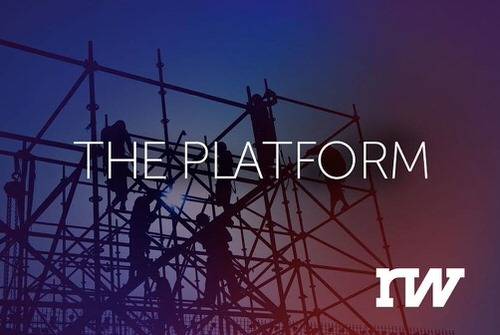
The Platform is a regular column by mobile editor Dan Rowinski. Ubiquitous computing, ambient intelligence and pervasive networks are changing the way humans interact with everything.
HBO programming is among the most coveted in all of television. Its catalog includes some of the best produced and most critically acclaimed comedy and drama series ever created. Millions of people want to watch those shows. They just have to pay the piper first.
Until today, that piper was your cable or satellite provider, who will only provide you with HBO if you also sign up for a whole bunch of other channels as well. While HBO offers its own streaming service, HBO Go, you can’t get it without a cable subscription.
In this world of cord cutters—people who forsake cable and use the Internet for their content needs—HBO’s reliance on the cable companies is problematic for its would-be viewers and even for the company itself. (Small wonder that HBO shows are the most pirated of all time.)
Today’s Quick Thought: Supreme Court, Aereo & Cloud Computing
If you haven’t been paying attention to the Aereo TV Supreme Court case, you probably should. Aereo, a service that repackages network TV broadcasts for consumers over the Intenret, has been sued by cable companies and TV networks over copyright violation. But the case has as much to do with the nature of cloud computing as it does the future of TV.
The legal issue turns on whether the network TV shows that Aereo records and stores in the cloud for its users should be considered a “public” performance or a private one. If public, then Aereo is presumably committing copyright infringement—exactly the outcome the TV networks and cable companies are looking for. But there’s a deeper questions here: If the Aereo data stored in the cloud counts as a forbidden public performance of copyrighted material, then what about everything else stored in the cloud? That could be a huge can of worms for the Supremes to open.
To their credit, several justices asked during oral arguments this week how they could rule against Aereo without impacting cloud computing. Here’s hoping that the Supreme Court finds a way to allow a unique and innovative service like Aereo to remain in operation while protecting cloud storage as we currently use it.
Big Deal, So Not A Big Deal
HBO’s big and famous back catalog—think James Gandolfini as Tony Soprano, Sarah Jessica Parker in Sex And The City, Ron Livingston in Band Of Brothers and Paul Giamatti as John Adams—is the reason Amazon’s deal to bring older HBO programming to its Prime streaming service is a pretty big deal. For the first time, viewers will be able to stream HBO shows without paying for a cable subscription. (Viewers could, of course, already buy the DVDs or pay to download individual episodes from iTunes, Google Play or Amazon.)
Granted, Amazon isn’t getting the newest and hottest HBO shows. Much like the streaming deals that Netflix, Hulu and Amazon Prime have historically cut with movie and television studios, the Amazon-HBO arrangement only covers series that have been around long enough to be released on DVD—though it doesn’t even include all of those. So don’t look for Game of Thrones or the newest episodes of Girls or Boardwalk Empire on Prime, although you will be able to find earlier seasons of the latter series there.
In that sense, you might conclude that the only novelty here is that HBO has finally stopped holding out and that Amazon beat out rivals like Netflix and Hulu, who would presumably have loved to make this deal. The deal will be good for HBO, which claims it will create new HBO cable subscribers, and for Amazon Prime members (who can now perhapsjustify that $20 price hike).
But if you take a step back and look at what Amazon is doing, there is also something much larger going on here.
Over The Top And Onwards Until Dawn
Directionality is the key here. As in, Amazon is now moving in the direction of superseding cable companies.
Quote Of The Day: “No individual has any right to come into the world and go out of it without leaving behind him distinct and legitimate reasons for having passed through it.” ~ George Washington Carver, American scientist, botanist and inventor.
Amazon is in a unique position relative to its online entertainment rivals. Apple and Google have streamable and downloadable movies and shows available for a price, but no subscription service for binge watching. Hulu and Netflix are subscription services with big catalogs, but they typically don’t offer newer movies (and, in the case of Netflix, newer shows). Amazon, Netflix and Hulu are all developing original programming, unlike Apple and Google. Neither Netflix nor Hulu have their own hardware for streaming, instead relying on the likes of Google’s Chromecast, Apple TV, Roku and now the Amazon Fire TV.
Only Amazon has the full package:
- Its Amazon Fire TV set-top box, which delivers both Prime and Amazon Instant Video rentals and purchases, as well as games.
- More than 200,000 titles to rent, purchase or view via Prime.
- The Prime subscription service, which cleverly offers streaming video as an add-on to what is, ostensibly, a free-shipping service for Amazon customers.
- Cross-platform ubiquity with Amazon Instant Video available on devices such as the Xbox One and Roku.
- Music download and streaming through its Amazon MP3 and Cloud Player services.
- Its own Android app store for serving the Kindle Fire and Fire TV.
If only Amazon could become its own Internet provider, it might render the cable companies almost completely irrelevant.

















